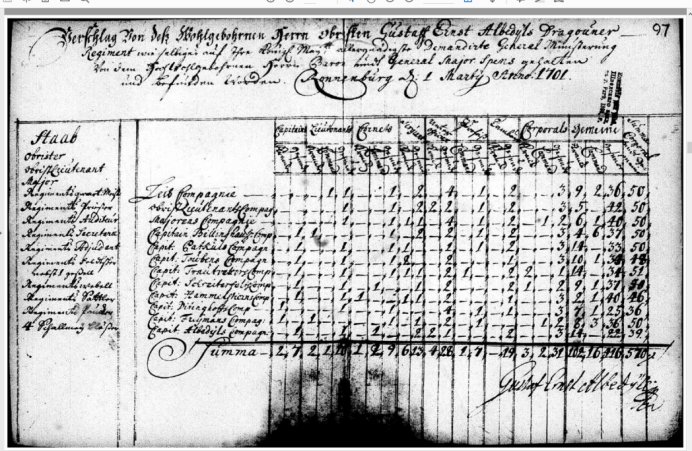Topic: Archives
I have been rather lazy for a very long time, but I'll try and and make some amends from time to time.
In 1912 Nils Wimarson published the final volume of his large work Sveriges krig i Tyskland 1675-1679. Most of it is devoted to events in Germany (as the title indicates), but he also touched upon the preparations for the ultimately failed plan to support the Swedish forces in Pomerania by sending a relief corps from Livonia. In volume III (p. 195 ff.) Wimarson mentions a council of war held in Riga at the beginning of February 1678. He did not have access to much in terms of sources, only a letter from Governor General Christer Horn dated 7 February and some summary from 2 February.
In the Estonian National Archives there are extensive records from these deliberations (EAA.278.001-XIX-21). They apparently were held both on the 4th and the 5th. It was a large gathering: Governor General Horn, the President of the Court of Appeals in Dorpat Lars Fleming, Governor Hans von Fersen, Major General Jacob von Yxkull, Major General Gustav von Mengden, Major General Christoffer von Güntersberg, almost ten colonels and Jacob Sneckensköld, who was in charge of financial matters.
The Governor General started the discussion by pointing out that the troops had been brought together and could not remain so for very long. Should the army march or was there some other alternative? The aim had been to relieve Stettin, but the city had fallen i late December. The appointed commander Bengt Horn (the Governor General's brother) was ill so if the army was to march someone would have to take his place. Christer Horn declared that he was ready to do so.
The Governor General then proceeded to read a number of letters from Charles XI, all written long before Stettin fell. Then he posed the question: Should the army march? Major General Mengden replied that he wanted to know what the Swedish Envoy Lilliehöök had reported from Poland. The Secretary Segebaden stated that Lilliehöök had written that there were very small Brandenburger forces in Prussia, only about 2,000. The Lithuanian Hetman Pac claimed that he would oppose a Swedish intrusion, but his forces were also small. If the Swedish army showed its usual resolve he would yield. The news from Pomerania showed what the Swedish army was capable of - Königsmarck had beaten an enemy force of 7-8,000 men with just 5,000 and had lost only about 15.
Major General Mengden then pointed out two things:
1. If Governor General Horn decided to march everyone present was ready to follow him.
2. If there were to be further discussions it was important to consider what would be most beneficial to Livonia - to march immediately or to wait some time.
(To be continued).


